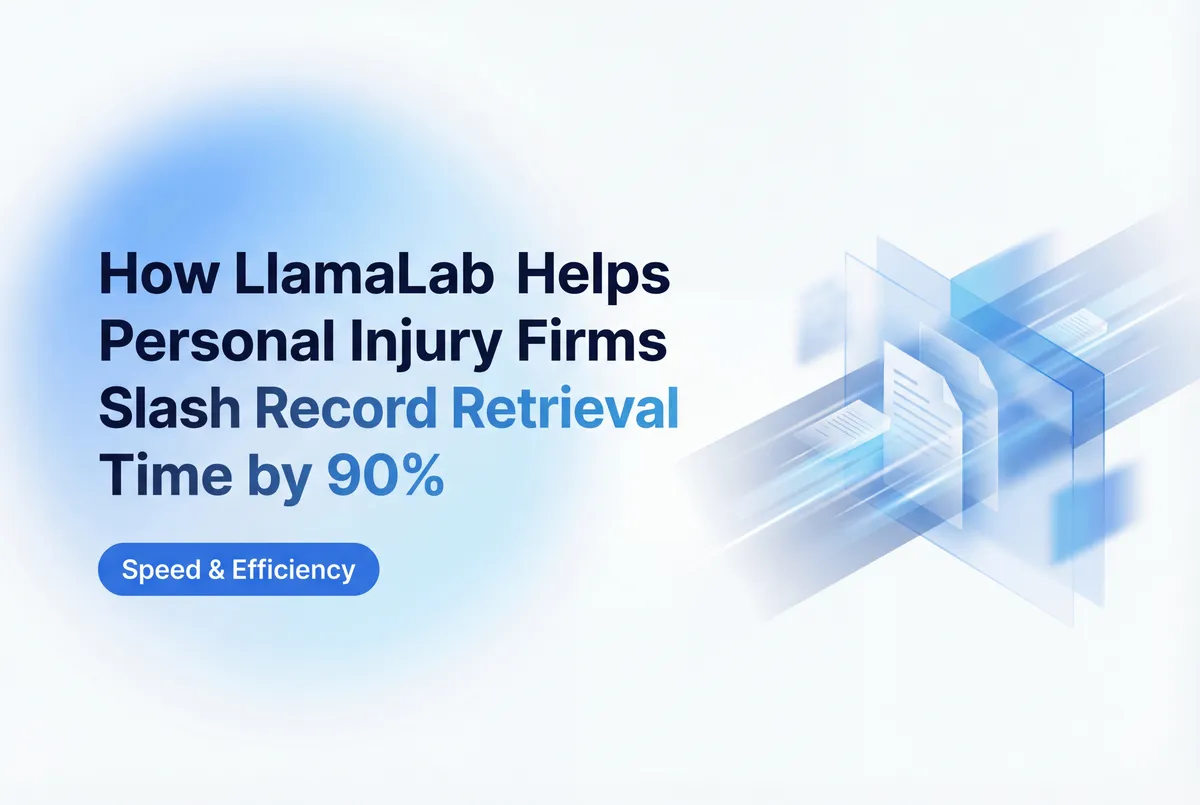How Legal Tech is Transforming Law Firms in 2024

Shere Saidon
CEO & Founder at LlamaLab
The legal industry is experiencing unprecedented technological transformation. From AI-powered research tools to automated document management systems, legal technology is reshaping how law firms operate, serve clients, and manage cases. This article explores the most impactful legal tech trends of 2024 and how forward-thinking firms are leveraging them for competitive advantage.
Key Legal Tech Trends in 2024
AI-Powered Legal Research
Artificial intelligence has revolutionized legal research, allowing attorneys to find relevant cases, statutes, and legal precedents in minutes rather than hours. Modern AI tools can:
- Analyze thousands of documents in seconds
- Identify relevant legal precedents with high accuracy
- Predict case outcomes based on historical data
- Generate preliminary legal arguments and briefs
These capabilities are dramatically reducing research time while improving the quality and comprehensiveness of legal analysis.
Automated Document Management
Document automation has become essential for efficient law firm operations. Advanced systems now offer:
- Intelligent document classification and organization
- Automated document generation from templates
- Version control and collaboration features
- Secure client portals for document sharing
- OCR technology for digitizing paper documents
These solutions eliminate countless administrative hours and reduce the risk of document-related errors.
How LlamaLab Fits into the Legal Tech Ecosystem
At LlamaLab, we're focused on solving one of the most persistent challenges in legal practice: medical record retrieval and analysis. Our AI-powered platform complements other legal tech solutions by:
- Automating the entire medical record retrieval process
- Providing same-day access to critical medical documentation
- Analyzing medical records to identify key insights for cases
- Integrating seamlessly with existing practice management systems
By addressing this specific pain point, we help law firms complete their legal tech stack with a solution that directly impacts case progression and outcomes.
Implementing Legal Tech in Your Firm
Successfully adopting new technology requires a strategic approach:
- Assess your specific needs: Identify your firm's biggest pain points and inefficiencies
- Start with high-impact solutions: Focus on technologies that address your most pressing challenges
- Ensure proper training: Invest in comprehensive training for all team members
- Measure results: Track key metrics to quantify the impact of your technology investments
- Iterate and improve: Continuously refine your technology strategy based on results
The most successful firms view legal tech adoption as an ongoing process rather than a one-time implementation.
The Future of Legal Technology
Looking ahead, we anticipate several emerging trends that will further transform legal practice:
- Predictive analytics for case strategy and resource allocation
- Blockchain-based smart contracts and evidence verification
- Virtual reality for remote depositions and courtroom simulations
- Advanced natural language processing for contract analysis and drafting
Firms that stay ahead of these trends will be well-positioned to thrive in an increasingly competitive legal landscape.
Conclusion
Legal technology is no longer optional for competitive law firms—it's essential. By strategically implementing the right tech solutions, firms can improve efficiency, enhance client service, and ultimately deliver better legal outcomes. Whether you're just beginning your legal tech journey or looking to optimize your existing technology stack, now is the time to embrace the transformative power of legal tech.
Stay Updated with Latest Insights
Get the latest articles about medical record retrieval and legal tech delivered to your inbox.


